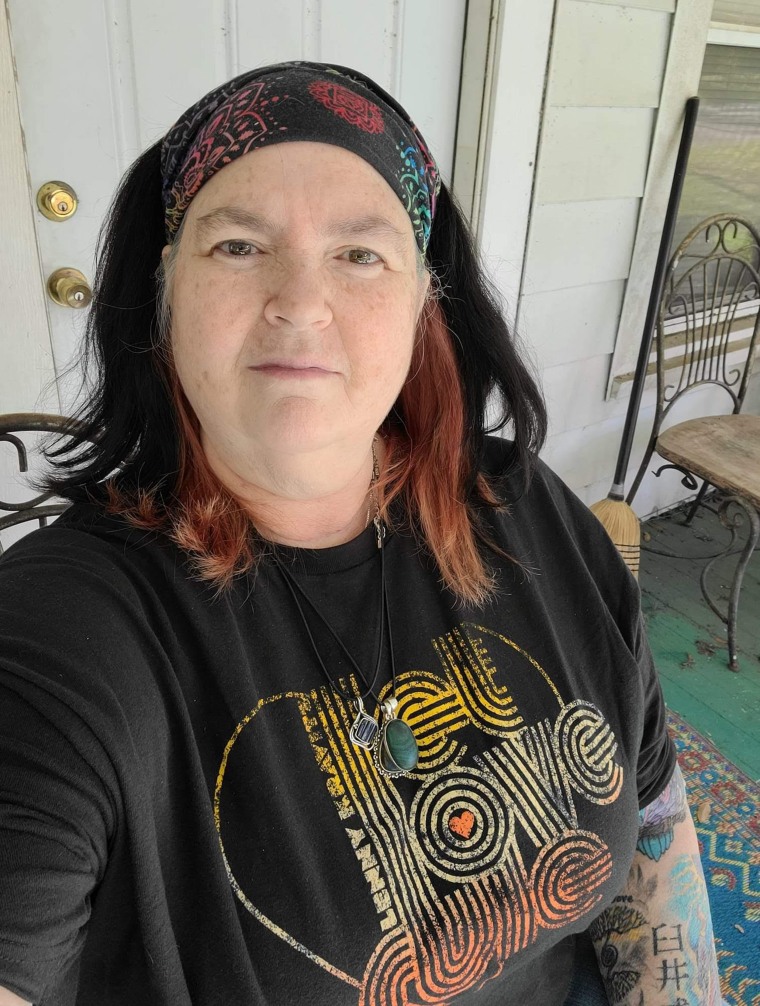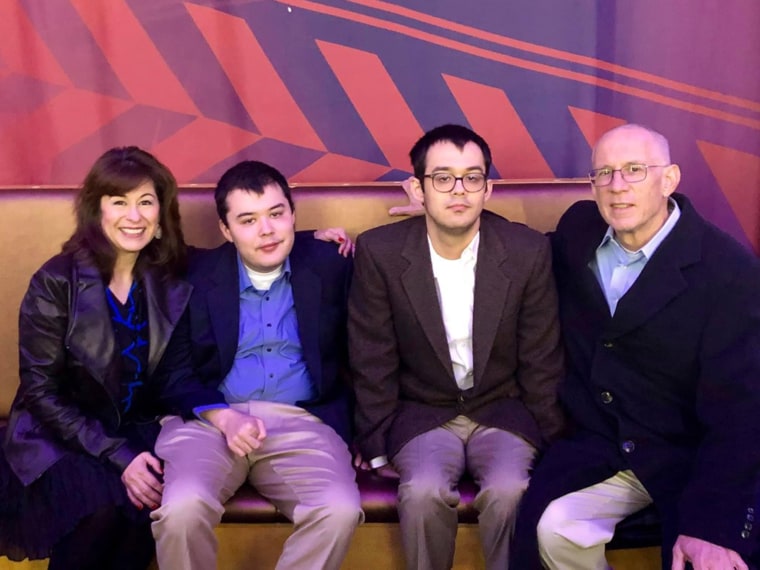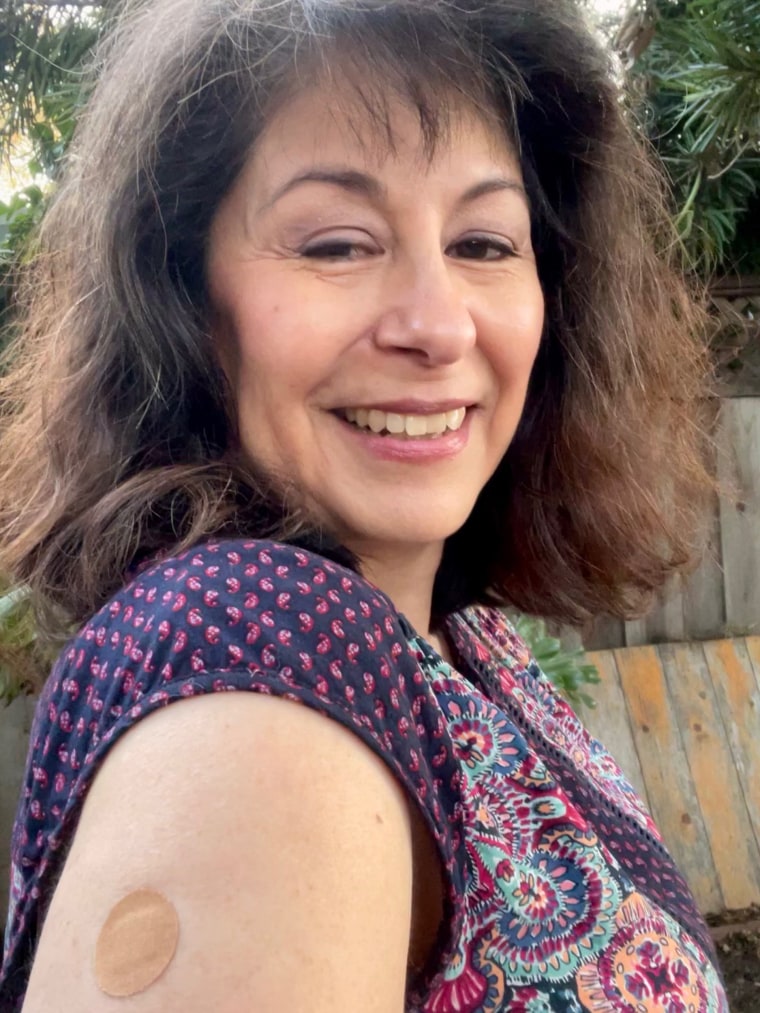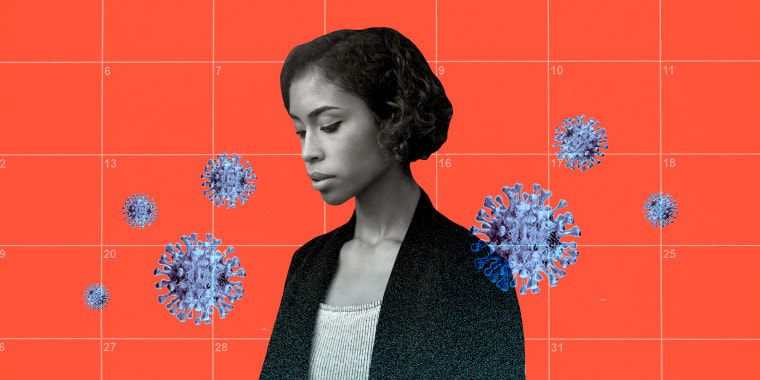In June 2020, Michelle Chason tested positive for COVID-19. Even after she felt better and had a negative test, she still experienced lingering symptoms, including brain fog, short-term memory loss, intensified acid reflux and tingling and numbness on the left side of her face. After having consistent symptoms throughout October, her doctor diagnosed her with long COVID-19.
“He treated everything the best he could, just treating the symptoms, and that helped,” Chason, 59, told TODAY. “There are times where if I have a lot of brain stimulation it takes me down. The Super Bowl was over stimulation that took me down for three days and I really couldn’t function.”
MRI scans and other tests didn’t reveal what was contributing to her exhaustion, muddled thinking and memory problems. It was overwhelming to Chason that there were so few answers or help.
“It’s very frustrating not to be able to focus or be able to watch a TV show or a movie. I haven’t picked up a book to read,” Chason said. “I hadn’t been able to focus on it at all. It is bad.”

But in February, Chason’s doctor surprised her with her first dose of the Pfizer vaccine. At first, she felt like something was wrong.
“Four days later, on a Sunday I had a jabbing chest pain. I was like what the hell?” she recalled. “I went through everything I had gone through with COVID, the chills, the nausea, the dull chest pain and shortness of breath.”
“I am starting to feel good.”
-Michelle Chason, after receiving a vaccine
After those symptoms subsided, something surprising happened: Chason started feeling, well, better.
“I have more energy. I am getting up and showering and starting my day. I am working on these projects and getting the house back in order from a year of quarantine,” she said. “I am starting to feel good.”
Chason is not alone. She and other members of Survivor Corps, an online support and advocacy group for people with long COVID-19, have reported some improvement after vaccination.
“It was very exciting for me,” she said. “I just want to be able to do stuff myself, to be able to drive again and feel like I was normal.”
COVID-19 vaccines and long-hauler symptoms
While experts say there’s no research on why this is happening, experts have some ideas why people with long COVID-19 report feeling better after vaccination.
“We certainly have a lot of theories that we’re hoping to investigate,” Dr. Dan Griffin, chief of infectious diseases at ProHealth Care, a health care provider with 300 locations in New York, told TODAY.
“There may be a certain amount of viral persistence and there’s a little bit of evidence to suggest that," Griffin said referring to a preprint of a paper that included images finding SARS-CoV-2 (the virus that causes COVID-19) in the intestinal track of some patients. If the research is accurate, the vaccines could potentially help the immune system fight off the virus remaining in their system.
“Some people have the idea that you get your vaccine and this gives you a really proper, robust immune response that allows you to clear any viral remnants still in the system, provoking this ongoing immune response,” Griffin said.
Dr. Ankita Sagar, director of the COVID Ambulatory Resource Support at Northwell Health in New York, agrees that this could be a possibility.
“That information is still to be delineated because it is so new,” she told TODAY. “One (theory) is that the vaccine is now recruiting some of the cells to actually start to build immunity rather than to continue on the pro-inflammatory state.”
If research proves that this is the case, it could change how vaccines are used, Griffin added.
“One of the exciting things here is the ideas of vaccine as a therapeutic for an infectious disease. That is very novel,” he said. “We usually think of vaccines as something you have to give ahead of time. Once you’re infected, you miss that window.”

But Sagar said that right now it’s unclear if the vaccine helps people feel better or if enough time has passed since the long COVID-19 symptoms started that they're naturally resolving.
“Could it be that maybe through a lot of the therapeutic or therapies and management strategies around prolonged symptoms, they're starting to see benefit and starting to see recovery and that just happened to coincide with when they were vaccinated?” she said. “Absolutely.”
Dr. Reynold Panettieri agreed that what people are anecdotally experiencing could be simply how post-acute COVID-19 works and there’s not enough of an understanding of it yet.
“Some people, likely a minority, will resolve chronic symptoms. You don’t have a control group to see what is the natural history,” the director of Rutgers Institute for Translational Medicine and Science told TODAY. "How do I know this is just time difference or real difference?"
Still, he says that people feeling better after vaccination “is great news.”
Some may think that people with long COVID-19 feel better after the vaccine due to a placebo effect, but Griffin says that normally works differently. In a controlled study environment, people taking sugar pills that they think help with something normally report experiencing that help even though they're not taking the actual treatment. With the vaccine it's different.
"It's sort of the opposite. Most of them went in expecting to feel worse," he said.
Still, it's possible that the relief people experience knowing they're protected could help.
"Now the fear of a second infection is taken away. Is there a psychological benefit there? That is something I certainly can't exclude," he said.
Even though the experts don’t have a full understanding of why long COVID-19 patients feel better after vaccination, they think this news provides another benefit — encouraging the vaccine hesitant to get the vaccine.
“It really seems to be rare that people who have long COVID would have any negative results from getting vaccinated,” Griffin said. "This tends to be consistent. That's what I'm hearing from my colleagues, this is what I'm hearing from long support groups — that a large chunk seem to have significant therapeutic benefit or improvement."
'About 75% better'
Juanita Strait wanted to share her experiences to encourage others to get the vaccine. She contracted COVID-19 on March 8, 2020 and has had symptoms ever since, including rapid heartbeat, brain fog, confusing words, hair loss and Graves' disease (an autoimmune disorder). She cares for her twin sons with autism so she qualified for a vaccine in January. When she got her first Moderna shot, it felt like she had mild COVID-19 again.
“I had, what my husband and I call, a Disneyland trip to COVID all over again because it was all the symptoms, just not as extreme, not as long, not as severe and not as scary,” the 56-year-old from Mountain View, California, told TODAY. “It was all the brain fog, the word salad, the rapid heartbeat, the knocking in my ears, a little bit of dizziness.”
“I was overjoyed, but so surprised. I didn’t know what was going to happen with the vaccine.”
-Juanita Strait, after becoming fully vaccinated
But after about 20 days, Strait woke and felt energized. She started cleaning her house.
“I felt like I have the energy right now. I was scrubbing toilets and mopping floors and doing laundry. I was cleaning counters and I’m like ‘Wow,’” she said. “At the end of the day I was just so happy, I know it sounds crazy, to clean my house.”

After the second shot she experienced fever and chills for 48 hours, but that passed.
“I would say I’m about 75% better than I’ve been, but not like I was before March 2020,” she said. “I was overjoyed, but so surprised. I didn’t know what was going to happen with the vaccine.”
She said she hopes her experience encourages others with long COVID-19 to get the vaccine as soon as they qualify.
“A hundred times I would say get the vaccine, even if it didn’t cure my long-haul COVID,” she said. “I am so much more relieved.”

